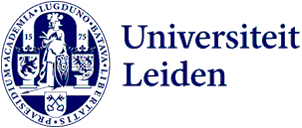
European Grant for Jörg Gross to explore how groups deal with social dilemmas
'I hope to contribute to a better understanding of social dilemmas we constantly face, like those that arise with climate change or the current pandemic,' says social and organisational psychologist Jörg Gross in an interview on his Starting Grant of the European Research Council (ERC).
Jörg Gross: 'This grant will allow me to fund larger cross-country studies and continue my research on social dilemmas and the emerging group dynamics.'
'Groups can create shared prosperity and address shared problems by working together. Social dilemmas, however, are dilemmas because each individual group member can be tempted to free-ride on the cooperation of others. Such dilemmas occur, for example, with climate change. If people reduce their carbon footprint by limiting their consumption, those that refuse to do so may still benefit from others’ cooperation in the long run without having to restrict their own behavior. Or in the case of pandemics, some people refuse to get vaccinated, but still benefit from others who do get vaccinated.’
Avoiding group dilemmas through self-reliance
‘Traditionally, we think of such dilemmas as conflicts between cooperation and selfishness. However, when a group is faced with shared problems, individual group members may also have group-independent, individual strategies to address shared problems. For example, in the current pandemic, some can afford to seclude themselves and work from home, while for others that is not so easily possible. Such ability of self-reliance adds an extra layer to social dilemmas.'
Modelling social dilemmas in the lab
'So far, however, we don't know much about the influence of self-reliance on group cooperation and the ability of groups to tackle shared problems together. We want to investigate this by having participants play a "game" in groups and analyze their decisions and group outcomes. Such "games" are designed to model some elements of real problems that groups face and allow us to simulate certain situations and conflicts that we also think we see in society at large.'
Combining different perspectives
'Combining behavioral economics and social psychology, the research is based on abstract models that contain some of the essential components of social dilemmas, without all the complexity we see in the real world. This allows us to isolate certain dynamics and examine group processes in a controlled and principled way. Ideally, we do this with a team with a broad interdisciplinary background. Ultimately, it's about combining ideas from psychology, economics, and theoretical biology.'
